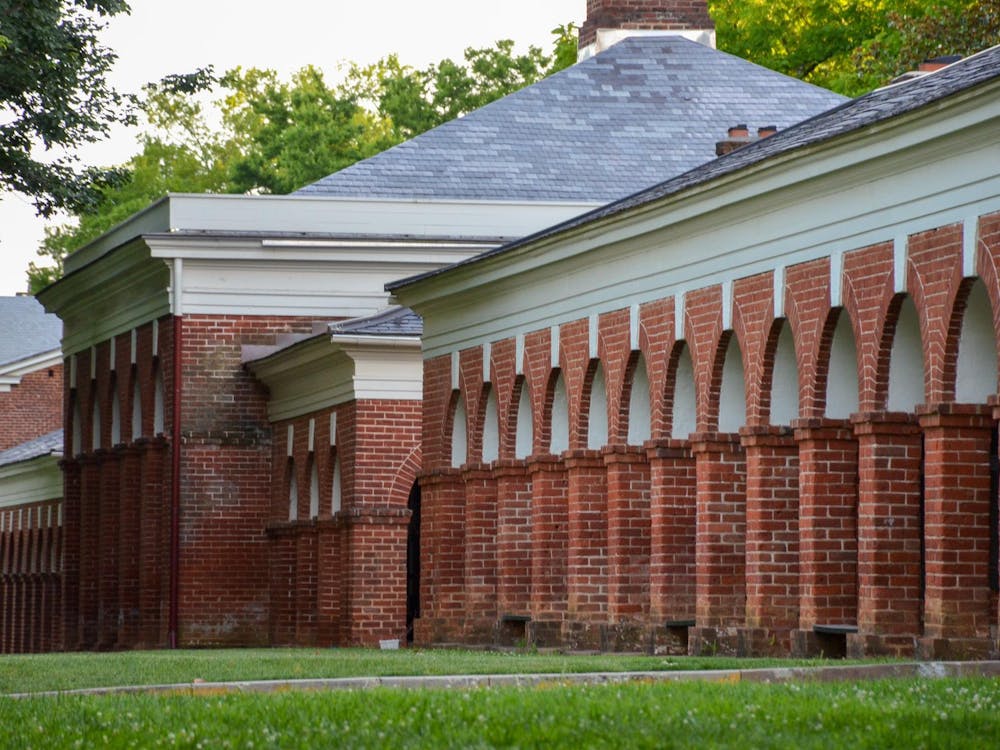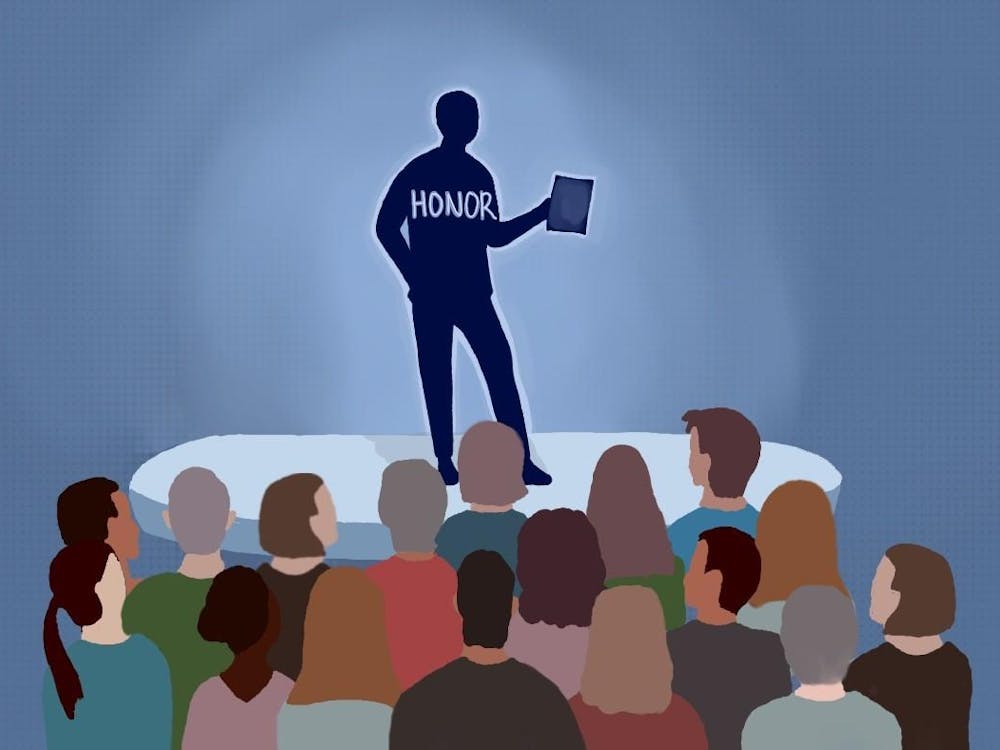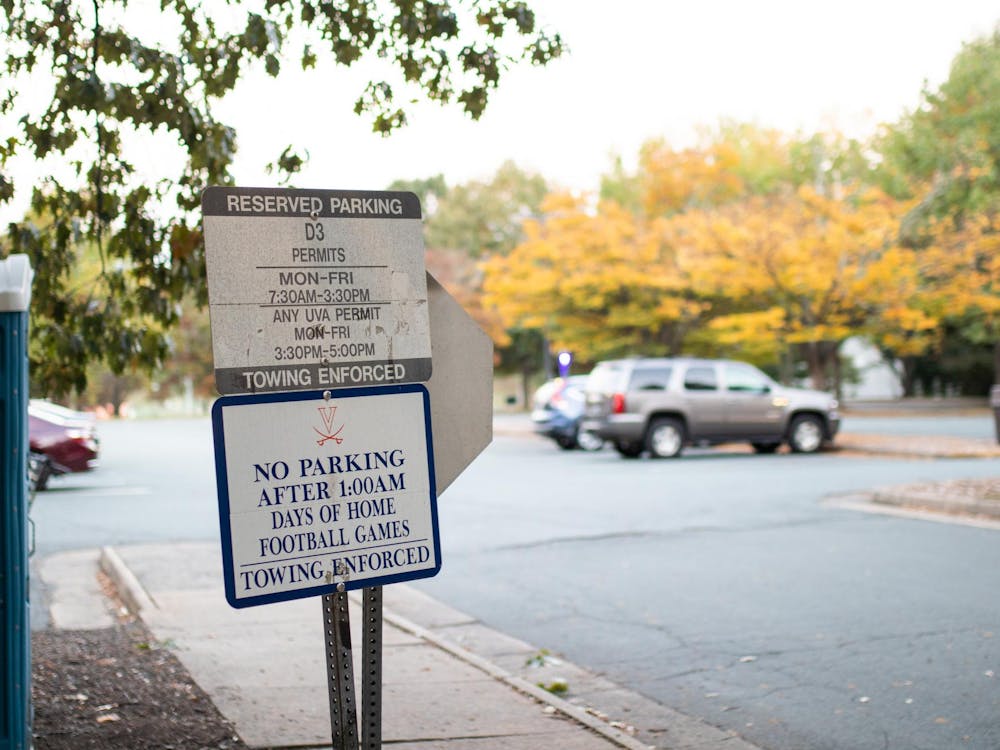The Atlantic Ocean sometimes seems to be an impossibly wide gulf between we Americans and our British cousins. It is said we are "two peoples divided by a common language"--irrevocably separated. Thus, each country has many misconceptions about the other. When I boarded a plane bound for London in January, I prepared myself for all the classic stereotypes Americans hold about the British: bad food, quaint villages, grim cities, and tiny roads. In short, I expected to find a European museum piece, its inhabitants sighing wistfully about the state of the Empire while sipping endless cups of tea.
They are strange things, these preconceptions about a country. Often people read guidebooks and allow them to define their expectations of how a certain place will be. If "Let's Go" says English food is stodgy, then the traveler will expect, and consequently find, stodgy food. In addition, the average visitor to the UK stays in London for a few days, sees the famous sights, and maybe takes a trip or two to Oxford or Canterbury. Our hypothetical visitor leaves, no doubt, with the impression that Britain is a country in love with ceremony and its own history but doesn't notice that beyond the bearskin hats, outside the cathedrals, there's a complex, vibrant, progressive nation reinventing itself at the close of a century of radical change. A British friend of mine who read Tom Bednar's June 15 column ("Tales from an old country") noted: "Anybody who can't find the motorways or eats only in the pubs isn't getting out very much."
I had the good fortune to be in Great Britain for six months. While there, I learned that while Britain does a fine job of preserving its past, it does not by any means live there. It isn't the economic, cultural and political powerhouse that America is, but neither is it dead in the water. Britain is home to a powerful petrochemical industry. It has the largest concentration of high-tech companies in Europe and is the second most wired country in the world. Artists like Charles Rennie Mackintosh ushered in the modern age to be succeeded by artists like Derek Jarman, who pushed modernism to its edge. British musicians such as the Chemical Brothers and Fatboy Slim are at the forefront of the music industry.
After being bombed to bits during World War II and undergoing civil change and economic depression in the 1960s and 1970s, Britain's cities are reinventing themselves as enticing places to live and work. We've all seen The Full Monty and its illustration of the typical northern English city. Happily, this is not accurate. Leeds, for example, long regarded as little more than a dirty urban conflagration, has matured into a center for culture, nightlife, and education, and is one of the fastest-growing cities in the country. London itself has residential and commercial developments at the architectural and functional vanguard.
As the global economy becomes more information-based, the British economy is working to stay in tune with it. Traditional British industries have fallen by the wayside, but the economy is rebuilding itself as an important member of the European Union. The British political consciousness is at a nationalist crossroads; while Euro-skepticism is a prominent issue, the country is also dealing with the innovation of devolution, which gives Wales and Scotland a limited form of self-government. These factors may well revolutionize Britain's role within the EU and the world.
But our visitor isn't concerned with politics and economics, just as long as she has a good time. Will she really starve like her helpful "Let's Go" correspondent tells her? I won't say there isn't dodgy food like spotted dick, jellied eels, and--don't ask--Redi-brek. Yet none of these things are any worse than what you'll find at your average 7-11 (decade-old hot dogs, anyone?). If you're willing to accept that British food hasn't the glamour of its French and Italian counterparts, you'll eat rather well. Sausages and mashed potatoes, fish and chips, clotted cream, Orange Tango, lamb burgers, herring for breakfast--all are mouth-watering. The restaurants, especially in the south of England, are great, and pub grub is a wonderful way to discover traditional English food. I've never had a bad meal in a pub (I can only assume that the fish-spine Bednar writes of came from one of London's Nouveau restaurants). Besides, the Chinese, Japanese, Thai, and especially Indian restaurants are divine, reflecting Britain's cultural diversity.
The American personality demands quickness and efficiency. When traveling in a foreign country, especially in Europe, the small area and concentration of things to see often makes us want to see as much as possible in a small amount of time. Americans (including myself) commonly believe they know a country after a few days' visit and a bit of advance reading. Yet that can lead to misunderstanding, even about something as simple as the name of a country. England is Britain's largest and most populous political division, but is not the name of the country as a whole--call a Scot an Englishman and he or she will get quite out of sorts. You wouldn't say Washington, D.C. consists only of the White House and the Capitol, and neither should you assume that London only consists of the Tower and St. Paul's.
When you travel to another country, even if you've only got a short period of time, try to figure out what the people are doing when you queue up for the next tourist attraction. Talk to the people in the pub. You will truly discover the world.
(Shana Perlman is a rising fourth-year College student.)






